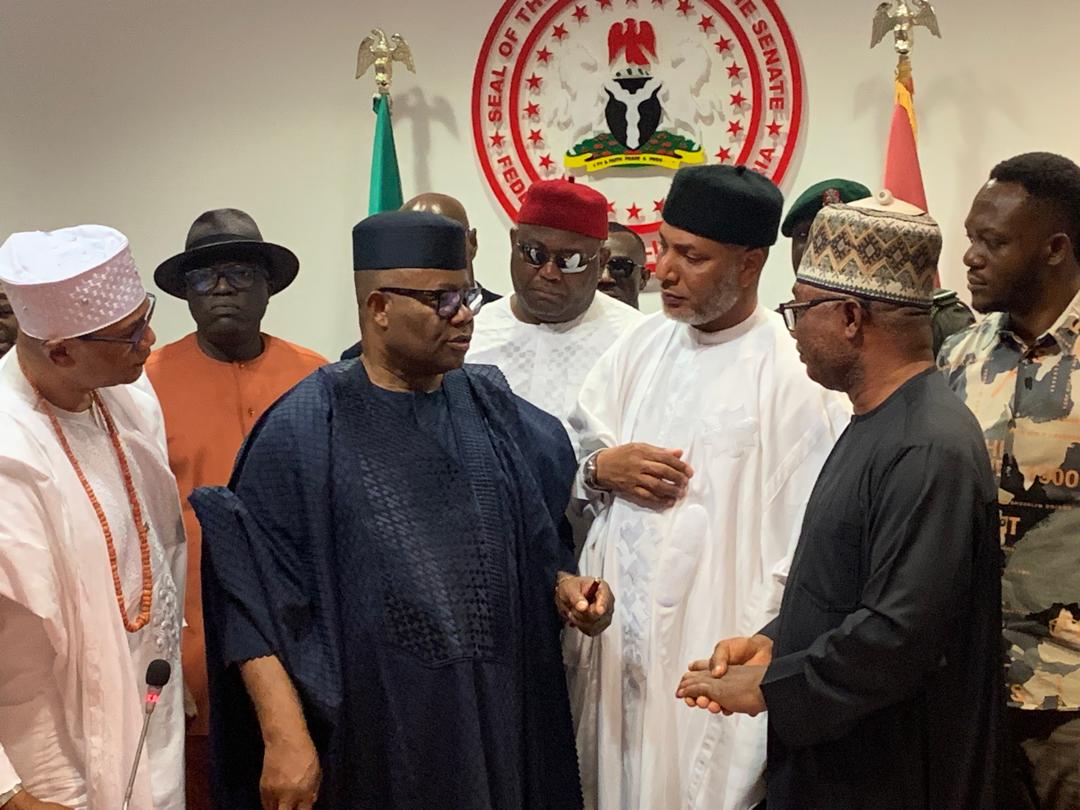
In recent media interview with Dr. Prince Emeka Egwuekwe, the Managing Director/Chief Executive Officer of Prince Interior Furnishing and Furniture Co. Ltd in Abuja, marked 24 years of his company’s existence by advocating for a paradigm shift in Nigeria’s manufacturing sector. He urges the 10th Senate to draw inspiration from successful models like China and prioritize the patronage and promotion of local manufacturers, while ceasing the importation of goods that can be produced domestically.
Dr. Egwuekwe refutes the notion that Nigerian manufacturers are solely responsible for the economy’s challenges, attributing their struggles to systemic issues within the country. Despite local production efforts, imported goods, including furniture and vehiclees, are prevalent in government offices and households, perpetuating economic imbalance.
He emphasizes the need for legislative action to align with successful strategies observed in other nations. Drawing parallels with China’s economic transformation two decades ago, Dr. Egwuekwe underscores the potential benefits of closing borders to imports that can be domestically manufactured.
With abundant human resources, natural assets, and a sizable population, Nigeria possesses the capacity to meet its own demands and even export surplus goods.Addressing concerns about the competitiveness of locally manufactured products, particularly in the furniture industry, Dr. Egwuekwe asserts that Nigerian furniture can rival its foreign counterparts. However, challenges such as energy scarcity hinder optimal production capacity, highlighting the need for supportive policies and infrastructure development.
Furthermore, Dr. Egwuekwe identifies inflation as a consequence of excessive importation, exacerbating economic instability. Encouraging domestic production not only fosters self-sufficiency but also addresses trade imbalances, ultimately bolstering the economy.
While expressing support for governmental initiatives like the Renewed Hope Agenda, Dr. Egwuekwe emphasizes the importance of constructive criticism to address systemic issues. He urges policymakers to prioritize local industries’ revitalization, citing the potential for job creation and economic growth. Regarding environmental concerns, Dr. Egwuekwe emphasizes Nigeria’s abundant forestry resources, emphasizing the shift towards sustainable manufacturing practices. He proposes leveraging digital advancements in furniture production and vocational training to mitigate skill shortages and enhance competitiveness.
In conclusion, Dr. Egwuekwe advocates for a comprehensive approach involving legislative support, infrastructure development, and policy reforms to foster a conducive environment for local manufacturing. By emulating successful models and prioritizing domestic production, Nigeria can realize its economic potential and achieve sustainable growth on the global stage.








